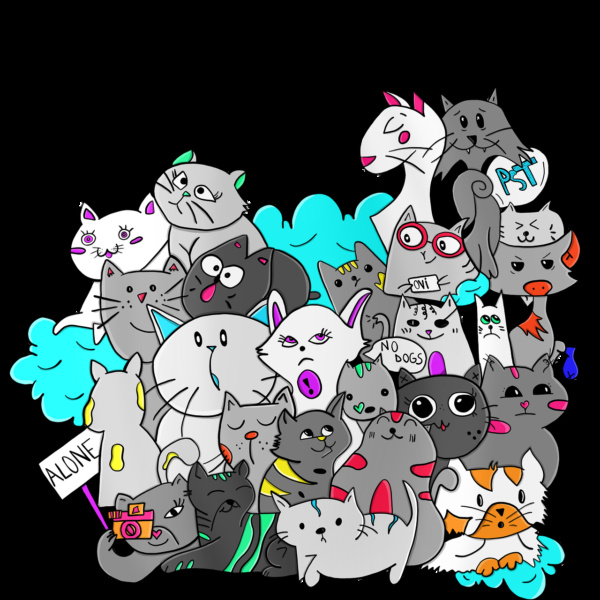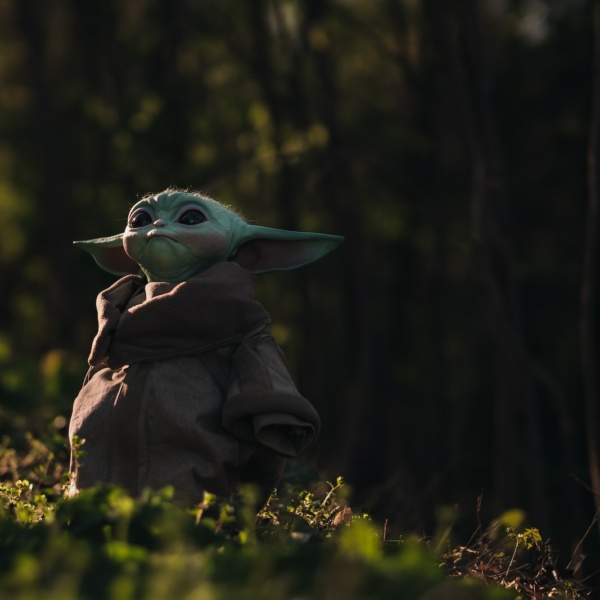
“Spring, Summer, Fall, Winter… And Spring Again”
If you feel sad, too bored or just want to find yourself in a pretty different universe from ours, if you think that you have already seen everything, I suggest you just get cozy, make a cup of coffee or a hot tea and watch the movie “Spring, Summer, Fall, Winter… and Spring Again”. If you do so, you will open the gate to a Korean movie-wonderland.
Is the name kind of confusing? What’s the point of it? It has its reasons that we are going to speak about later. This movie will surely become a part of the list of your favorite movies (if you are reading this article, I’m sure you have such a list already).
Why Should You See It?
I have seen it several times. I don’t even remember the exact number. Why? Because it is deep and complex, you find something new every time you watch it, something unbelievably valuable, and the cinematography is breathtaking. The movie depicts a different philosophy of life, the strength of uncontrolled love, the cynical circus of every day and the mystery of remorse.
About the director:

If you love movies, I’m sure you adore Kim-KI Duk as well. One of the most influential, intellectual representatives of the modern film industry. He was born in South Korea, in 1960, on December 20 and unfortunately, passed away last year in 2020 due to the Covid-19 pandemic. But he managed to leave more than 30 movies, all of them capable of blowing your mind.
The way of creating Kim-Ki Duk universe:
Kim-ki Duk was studying fine arts in Paris. So, the talent of creating visual masterpieces, which he had, was even more enhanced there. You will see his creations and realize it right away.

The brainpower and wonderful sense of taste can be seen in every detail: every single shot in his movies become a marvelous piece of art, unique colors will take you out of the universe, the sounds, so proper to the action, will awaken something sweet deep in your heart, without you even realizing it. Watching his movies is like daydreaming.
The Plot:
The screenplay and the scenario of the movie may seem very simple at the first glance. This is the story of a Buddhist monk, living all by himself, in a deserted place, on a tiny island, surrounded by the cold and, time after time, frozen lake.

He is doing yoga for the body and soul and raising a child. From the first moments, we can’t really see or even make assumptions about how the child got there (actually, the baby was abandoned years ago).

But it is not the primary point of the movie. From the beginning, you may think: “Okay so what? Is that all? What can happen here?” but believe me, this is not only worth watching but also re-watching several times.
The Symbolism in the movie
If you love finding symbolic signs in movies, this one was created for you, as it is fully adorned with simulations of all kinds of symbolism.

For example, a sharp eye will observe the Archangel on the door in this picture, which appears time after time, and is not always visible. At first, I thought it was a mistake of the director, but I found out the truth about it later at the end of the movie. I don’t want to spoil you, so just watch it and guess by yourself.

The intrigue stars, when the baby boy grows up and for the first time in his lifetime, comes across the lady- the creature, never seen before in this God’s forgotten place. A beautiful creature is sleeping next to him, breathing beautifully and awaking something unknown in his heart and body.
Love or Passion?
As for me, from the moment the boy sees the lade, the story starts to repeat a biblical history: God created woman for Adam, and he forgot everything because of her and committed the first sin with Eve. On the night of the testimony, I call it like that; the house is surrounded by the mystic fog as a symbol of love which enwraps everything, which shuts down the rational mind and lets the instinct rule over a man.

And the first sin of humanity is committed in front of the monk. This is very important. And from this moment on, the gate of this wonderful garden suddenly shuts down in the movie. So, I think, this is how the director is emphasizing the aftermath of the story of Adam and Eve.

They repeat the action, again and again, hiding from the saint monk, feeling guilty, but still, unable to stop. This feeling, called love, is overflowing. And here they are, making love on the boat, not on earth, not in heaven, just somewhere between it.
Regret:
The sense of regret is one of the manic emotions in the movie. How the boy acts is actually very interesting in the beginning, during his childhood. Especially, how he treats the animals and fish and how the monk makes him regret his deeds. At the end of the movie, we realize that the monk himself, once “walked in the same line” as a child.
So, this is where I’m going to stop. You should see this marvelous movie, full of passion and human emotions, and think for yourself, what is the real plot of the story? Love? Religious beliefs? Passion? Or death? Are we creating our own life? Or are we just repeating the circle for a lifetime?
The achievements:
The movie itself was quite successful. To sum up, it has 15 wins and 8 other nominations.
It is the winner of the Argentinean Film Critics Association Awards, which took place in 2005- nominated for the Best foreigner film.
In the same year, it also won the prize of Association of Polish Filmmakers Critics Awards and so on.
In most of its awards, it was established as being one of the best non-American movies.
Parasite
Just because I wrote about one of the Korean directors, I want to mention another genius from the same land: Bong Joon Ho. This almost insane director created a masterpiece of the XXI century, a breathtaking movie, called “Parasite”. make sure to check it out if you have not already.
Director:
Bong Joon Ho was born in South Korea as well, on September 14, 1969.

He is one of the most influential and courageous filmmakers in history. He has won more than 190 wins and has another 134 nominations.
The signal for Society:
In one of his latest creations, he dared to show the huge abyss of society in Korea and how the human everyday lifestyle is absolutely different from each other creating the two opposite poles: while some live in luxury, others lust for life, just simple life, with food and a safe place to live.

In the movie, we see the struggle of a young man, willing to achieve something in life, to be a person, praiseworthy, someone, who his parents can be proud of. We see that this man, growing up in a disgusting, dirty suburb of Korea, actually has talents, as does his sister. In trying their best to escape from the reality they have, they are willing to go as far as creating a maze of lies.
A Blessing or a curse?
The audience realizes how hard the life is for the main characters when we see the scene of great flooding happening in the city. The lady, living in a fancy house surrounded by servants and maids, says that the rain is a real blessing from God. For them, it indeed is a blessing as it makes the heavy summer air fresher, but for the poor people, it’s like hell on earth. We see how they are trying to survive locked inside the toilet, cold and frightened, hopeless and sad. Why is life like that for different people? How can we change it? This is the questions Bong John Ho is asking and simultaneously giving the answers to with this masterpiece.
Symbolism in the movie:
The movie itself is adorned with symbols that point at many things. The colors of the walls, the mystic stone of luck- making the reason for the evil actions suggestive. While watching this movie, you will feel a strange alienation, you feel how unjust life is and how helpless we are.
We come to talk about the symbolism, so I’m going to mention one of the greatest movies of all times: “the Melancholy”.
Is Shakespear still alive?
The movie captured people’s attention as soon as its cover poster was shown. If you have ever read or heard of Willian Shakespeare’s “Hamlet”, then you will understand what I’m talking about. The real genius, English dramaturg William Shakespeare inspired Lars Von Trier to make a wonderful movie about Ophelia – and her emotional conditions.
But before I talk about it, I want to tell you more about why this movie is freaking great.
Symbolism in a movie:
There are many movies about alienation, of feeling alone on Earth, but this one is my favorite and I’ll tell you why. Color psychology take the leading role here. If you are not familiar with color psychology I’m going to explain it to you in few words.

Color Psychology:
Color psychology is characteristic of the Scandinavian film society. And Trier is the best among them. We see too many “Green” in the movie, as well as on the main picture- poster. It is not accidental and has its reasons.
In the film industry, the color “green” is perceived as psychological destruction of personality, or an instability of a soul. Sometimes, it is even thought to be the whole extinguishing point of a character.
Even before watching the movie, when you see the poster, you will suddenly feel that there will be drama, sadness, loneliness, heartbreak and emotions of this sort.
On the poster, a beautiful bride is lying on a green swamp, with a dazzling white bunch of flowers in her hands. She is smiling, but we feel that she is not okay. Even more so, she is depressed.
The Swamp:
The swamp in literature and in movies as well, is the symbol of depravity, the association of falling down, losing soul, and so on.
But what was Trier’s inspiration behind having such a poster?
As I already mentioned, Trier was inspired by William Shakespeare, but that does not complete the list. Actually, before making this movie, he saw the perfect expression of “Ophelia”, painted by John Everett Millais.

We see the depression in this picture as perfectly as the feeling of it we get while reading Shakespeare, or just watching “the Melancholy”. The difference is the dates: Shakespeare wrote it in medieval times, somewhere in the middle of 16th century. John Ever Millais painted the picture in 1851 and Lars Von Trier created the movie in 2011. But they all had the same intention. To show the depression and sadness of a person.
With Shakespeare, in the storyline, we see that Ophelia, who has a wonderful life, is rich, and has a powerful father, falls for Hamlet. But soon, she finds out that the killer of his father is actually her lover. So desperate and downhearted, she decides it’s better to die than to live with the pain.
The Pain or Glory?
Is it easy to have the power and happiness at the same time? As in “Parasite,” we see that one is always willing to gain power at the cost of losing happiness. Where is the line?
In Trier’s movie, we also see how desperate the young lady is on her wedding day. She has everything but feels nothing at the same time. What is the reason?
It’s on you to decide.
Author: Natia Kurtanidze


